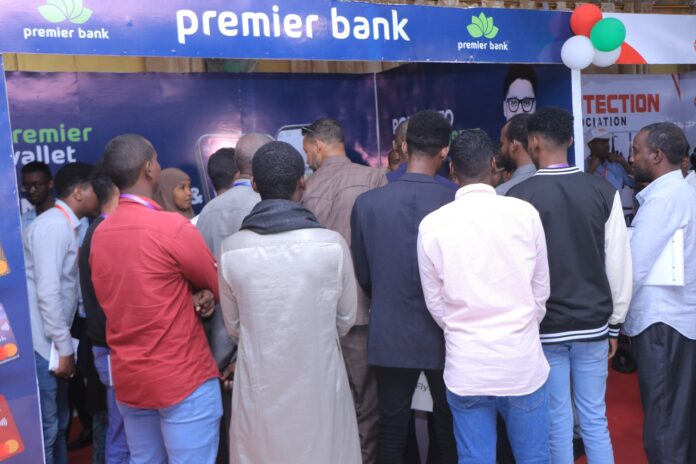MOGADISHU (Kaab TV) – A cash crisis has gripped two major banks in Somalia’s capital, Premier Bank and IBS Bank of Somalia, leaving customers unable to withdraw funds for three consecutive days.
The crisis has also dashed the hopes of bank employees who were expecting pay raises for the new year, with management citing financial challenges.
Local business owners told Kaab TV that after attempting to withdraw funds, they were asked to wait until next week.
“There was no cash available, and they sent us back with nothing,” said Abdirahman Bule, a business owner in Mogadishu.
Mohamed Yasin, who works at a car dealership, expressed frustration after being unable to pay his bills.
“They promised me on Saturday to come back on Sunday. I went back on Sunday, and I got no money,” Mohamed said.
The crisis is reportedly linked to the banks’ heavy investment in a controversial real estate and land auction scheme under the Federal Government of Somalia.
Both banks invested heavily in acquiring public land and constructing properties for sale.
However, the plan backfired as legal disputes over land ownership deterred buyers, leaving the banks struggling to recoup their investments.
Opposition leaders, including former President Sharif Sheikh Ahmed, former Prime Minister Hassan Ali Khaire, and MP Abdirahman Abdishakur Warsame, have strongly condemned the ongoing auction of public lands by President Hassan Sheikh Mohamud’s administration.
In a joint statement issued in early January, the three leaders accused the government of breaching constitutional and legal provisions by auctioning public property.
In Mogadishu, enforced evictions persist as internally displaced persons (IDPs) and vulnerable families are removed from public lands, which are then sold to wealthy businessmen.
Cash proceeds from these transactions are reportedly received directly by President Hassan Sheikh and his immediate family, including his two wives and children, according to multiple sources.
Among the affected sites are former military camps, a public cemetery, schools, and several abandoned government ministry buildings, leaving displaced residents in dire circumstances.
The former leaders have also warned that the real estate initiative could serve as a front for money laundering, posing significant risks to the fragile Somali economy.
Despite the growing concerns, the Central Bank of Somalia has yet to comment on the matter, leaving customers and businesses in limbo as the crisis deepens.
For now, many have no choice but to wait and hope for a resolution, as public confidence in the banking system continues to erode.


